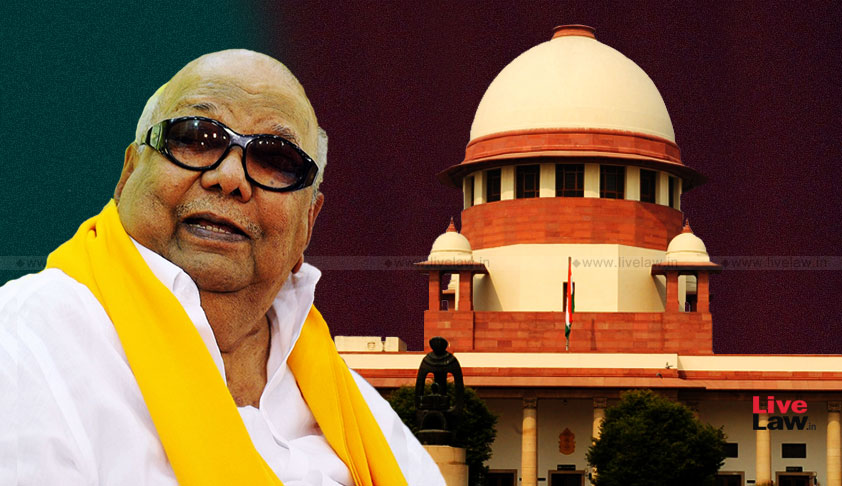Next Story
8 Aug 2018 4:10 PM IST
The case, M.Karunanidhi v Union of India decided by the five-Judge Constitution bench of the Supreme Court on February 20, 1979, is a landmark case. The constitution bench comprised of Justices Syed Murtaza Fazalali, Y.V.Chandrachud, P.N.Bhagwati, N.L.Untwalia and R.S.Pathak. The unanimous judgment of the bench was authored by Justice Fazalali, who was incidentally, the first Judge to...

